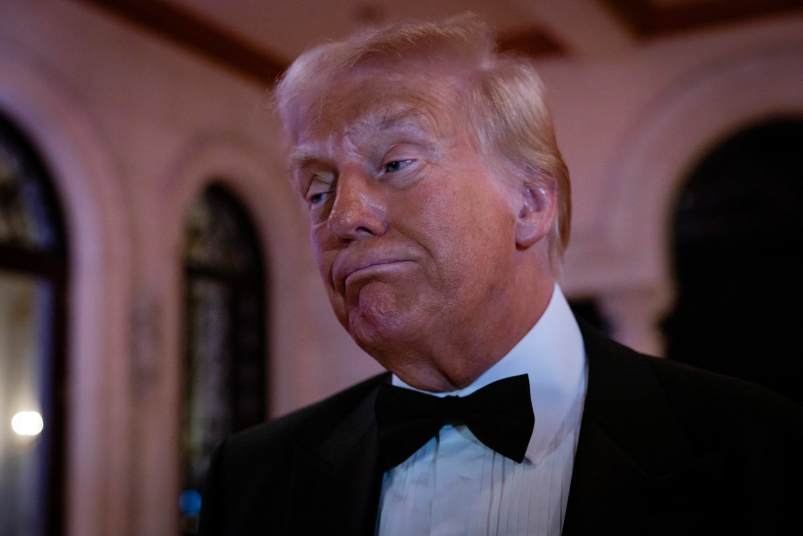Let’s review some recent events.
The White House (yes, technically the GSA guy and the two lawyers) sent that letter to Harvard, demanding de facto control of the university’s hiring, admissions and various elements of its curriculum. Harvard replied with a flat rejection ten days ago. The White House immediately responded by freezing $2.3 billion in grants to Harvard. That was on April 14th. Then, four days later (April 18th), there was that weird article in the Times in which we learned that the White House said that the original demand letter had been sent by mistake. The White House wasn’t disowning the contents of the letter, or not exactly? They made what might best be described as a kind of low-energy and churlish demand or beg for Harvard to continue negotiating. It’s been reported that the White House made as many as three informal contacts to restart negotiations. Then, three days (April 21st) after that, Harvard sued. I noted yesterday that a majority of the University of Michigan Regents published an op-ed backing Harvard’s stand and denouncing the White House’s coercion tactics. The American Association of Colleges and Universities published an open letter doing the same which was signed by more than 150 university presidents.
As some of us have speculated, it’s not clear the White House feels like it has a card to play if a university calls its bluff in this stand off. I’m now told that the White House has been signaling to Harvard that it wants out, doesn’t want the fight. It certainly seems clear the White House wasn’t expecting the battle to escalate as quickly as it has or, perhaps as importantly, other universities to be coming forward, either individually or en masse, to side with Harvard’s fight.
Speaking for myself, it’s always seemed to me that the White House needs to crush and/or humiliate a handful of universities … but only one at a time. In each case it has to be one victim alone, with everyone else cowering in the shadows. Once the point has been made, with a few institutional corpses, no one else will get out of line. That’s the idea. If all the colleges and universities band together, the whole thing falls apart. It certainly seems like it’s beginning to move in that latter direction.
My question is, what does Harvard do in response to those signals? Trump is in the midst of a humiliating unilateral climb-down on his tariffs on China. (All power is unitary; and low energy is too.) I can’t imagine that they don’t want some concession from Harvard, though perhaps minor or even nominal ones, to save face. Does Harvard provide that? And how does that impact American higher education’s broadly, building opposition to Trump’s Orbán-inspired plans to bring universities to heel? The White House certainly isn’t washing its hand of the whole issue. The White House just released a new executive order targeting accrediting organizations, which is a circuitous but possibly powerful way to cut off Pell grants and student loans for targeted universities — something that could put many colleges and universities out of business very quickly.
If you’re the White House it probably makes sense to unwind this escalating confrontation with Harvard and come at the whole thing again, perhaps more incrementally, perhaps focusing on more vulnerable institutions. As I noted in yesterday’s post, Harvard is one of the few universities in the country that has the resources to hold out for some significant period of time in a protracted legal fight.
What it all comes down to is that a lot likely depends on what Harvard does in the coming days and weeks. Does it give the White House a figleaf that allows it to stand down? Does it press ahead?
[Ed. Note: Are you Harvard University President Alan Garber? We want to hear from you! Or I want to hear from you. You can use the encrypted channels above and below this article!]
Late Update: Just as I was writing this, Harvard President Garber and Provost John F. Manning sent out an email with the subject line “Update on University Committee on Rights and Responsibilities.” The upshot is tied to “time, place and manner” rules about speech and protest and a set of rules designed to insure that similar activities would receive similar discipline across the university’s various schools regardless of the content of protest. Perhaps this fits into the fig leaf issue I describe above? Many universities have wanted to tighten these rules and regulations after the protests of 2023 and 2024. Quite a few have.
Later Update: Shortly after the email about university disciplinary procedures went out, another followed. This email announced that the Faculty of Arts and Sciences would be imposing a salary freeze through the 2025/26 school year, part of “pausing all non-essential capital projects and spending.” The email reiterated an already announced hiring pause for the summer of 2025. These steps were taken, the email explains, to conserve financial resources for a lengthy legal fight with the Trump administration.






